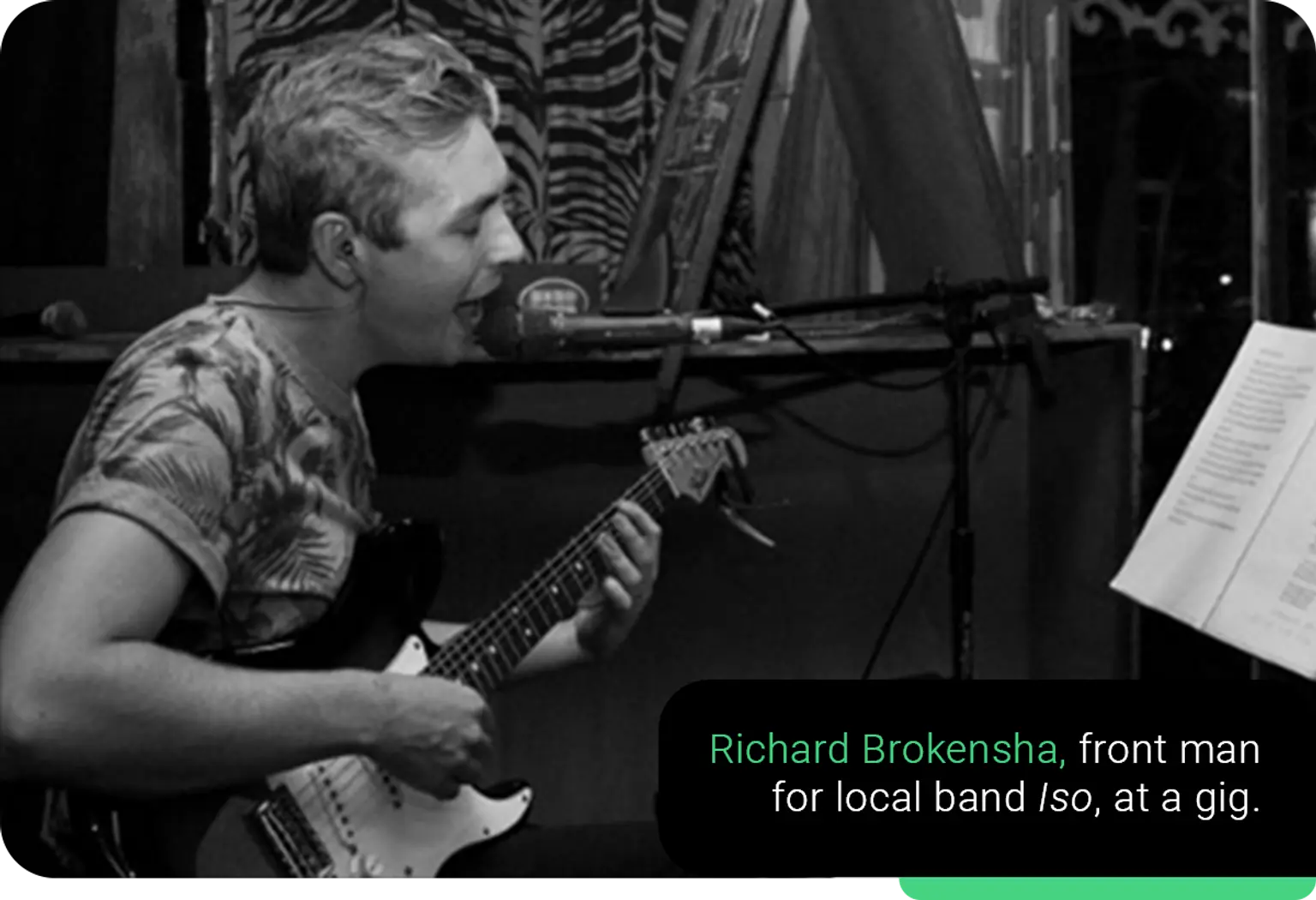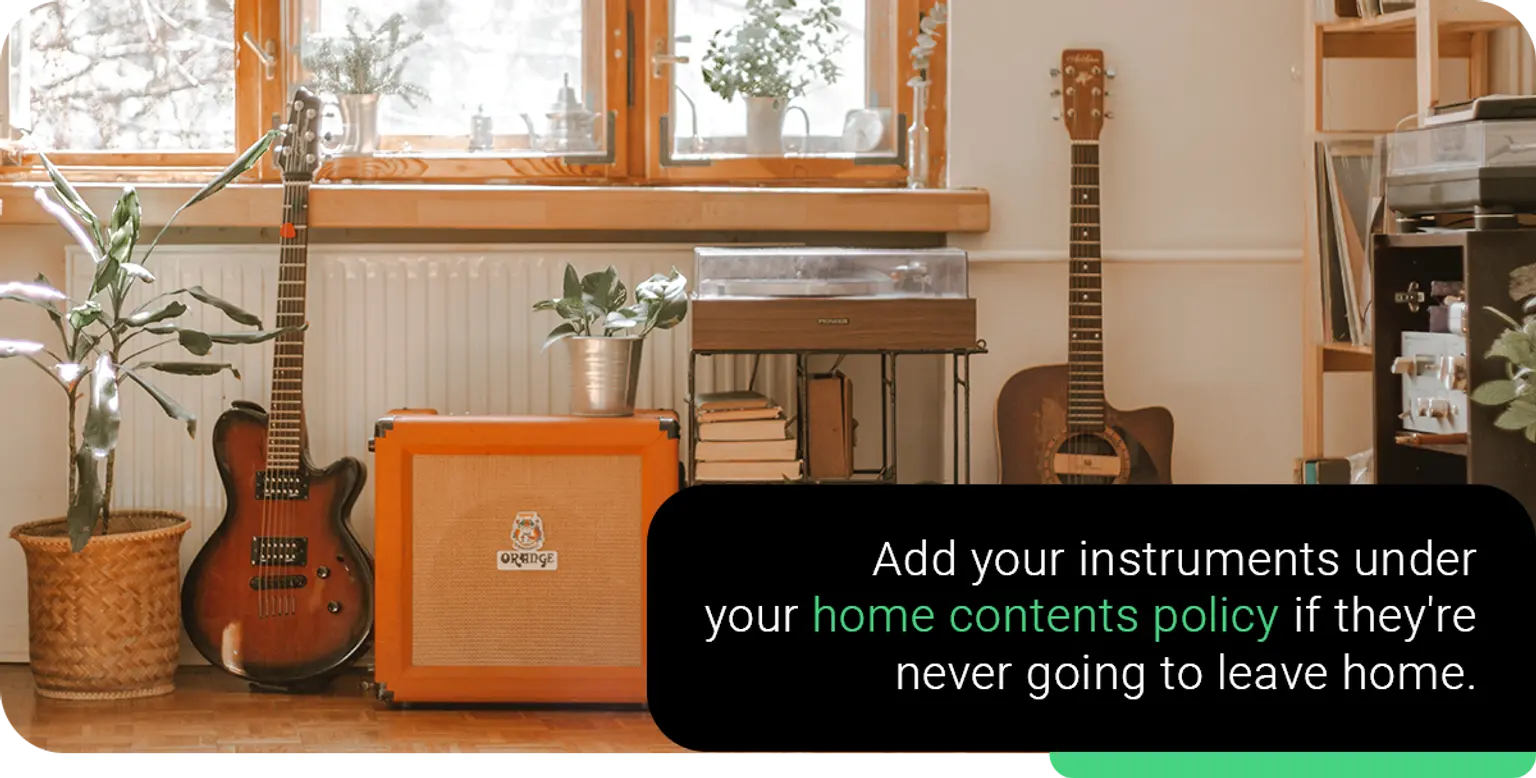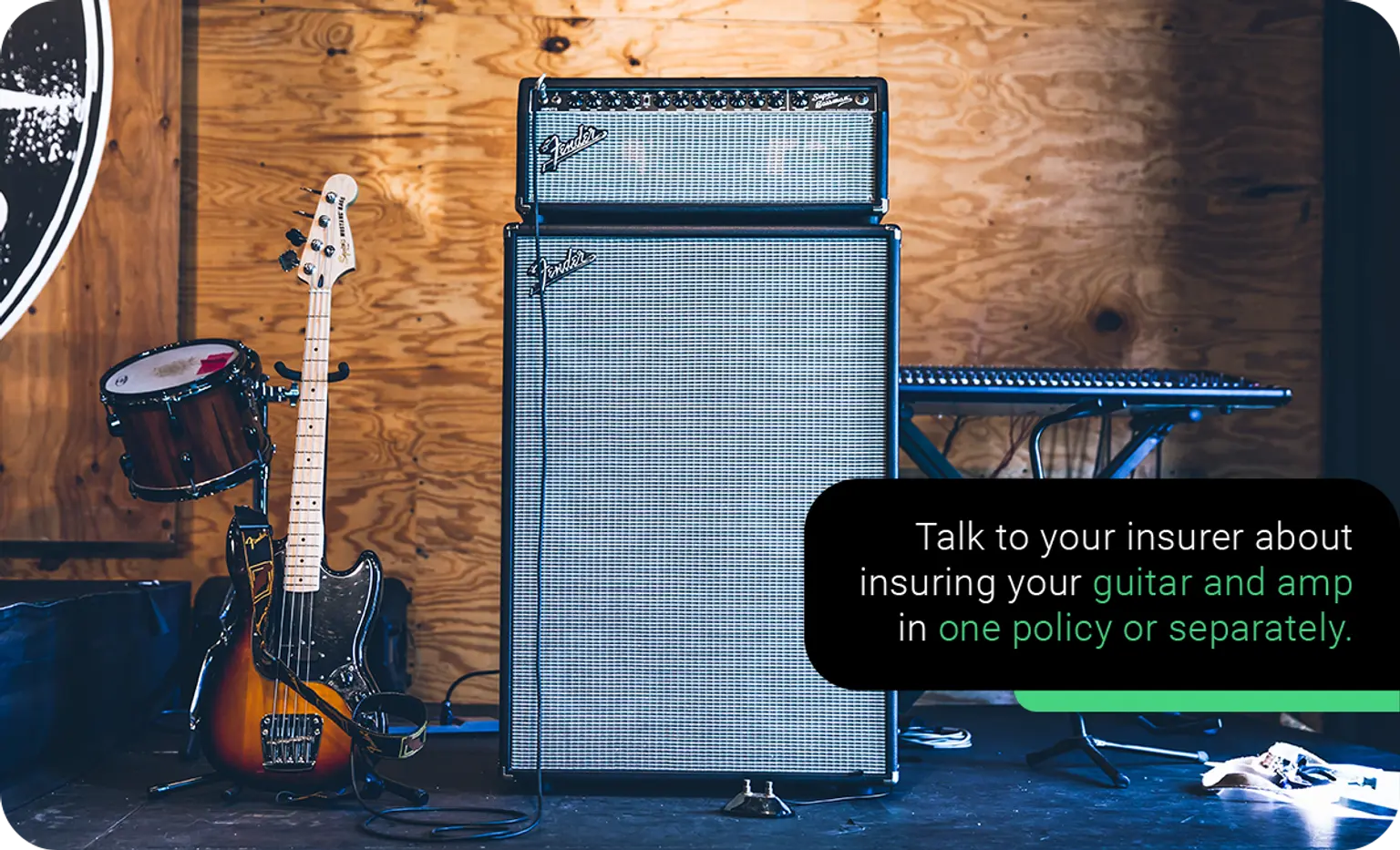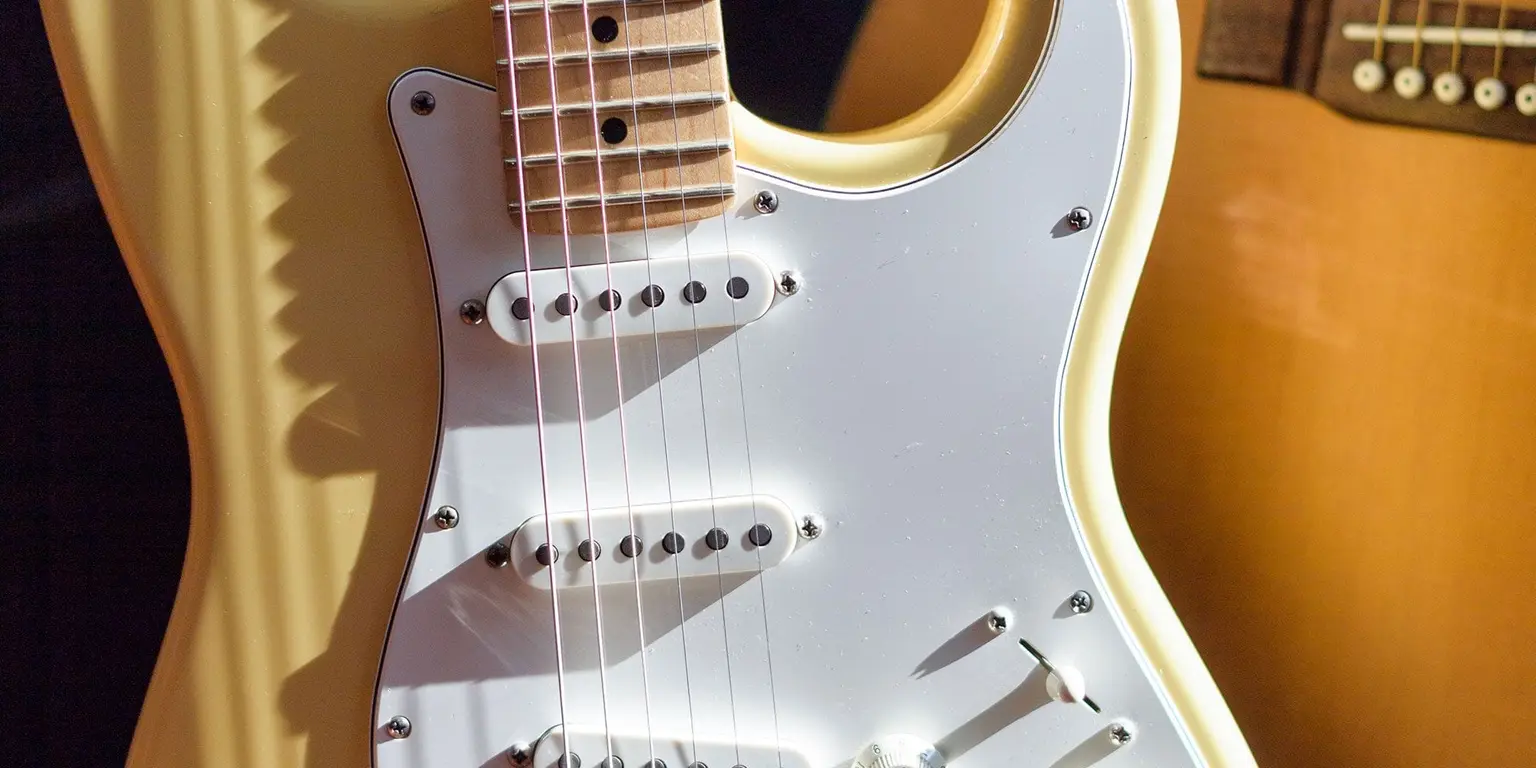Everyone’s situation is a bit different but the most important two questions to ask are, do you play music for money, and do you do it at home mostly or do you often take your instrument(s) out?
Insurance is all about risks, so a good place to start might be to ask yourself: what’s the worst that could happen?
For Richard Brokensha, lead singer and guitarist of the legendary South African band Iso, it was losing an entire trailer, packed with every piece of gear the band needed to put on the electrifying performances they were famous for.
“After an incredible set at Oppikoppi, we woke up the next morning to find someone had broken our trailer off of our vehicle in the artists’ area and had driven off with all of our equipment we had built up over the years,” Richard recalls.
He remembers the long-term effects that the loss had on the band:
“It’s the most gutting feeling ever, knowing that your tools to work with have been stolen. Replacing the gear took months and cost us a lot of money, and the worst part was that it was instruments that had travelled the world with us that were stolen.”

If you’re a hobbyist who only plays at home, you may not face the same risks as someone like Richard, who plays four or five gigs a week. So let’s start by understanding your relationship with your instrument(s) a little better.
Do you play at home for personal enjoyment? Collect instruments for sentimental purposes or investment value? Teach music at your home, or your students’ homes? Perform regularly at concerts that require a certain amount of travel? Do you sell instruments? Or record artists in a professional studio environment?
Everyone’s situation is a bit different but the most important two questions to ask are, do you play music for money, and do you do it at home mostly or do you often take your instrument(s) out? Depending on what you do with your instrument and what type of instrument you have, different insurance options would cater to your specific situation.
Get business insurance for when you use your instrument to make a living
It’s worth considering business insurance if your instruments are part of a bigger commercial operation, e.g., a studio where you are a recording artist or a shop that sells or repairs instruments. The reason you may prefer business insurance is because there will be other insurance considerations you will want to take into account: public liability (if someone slips and hurts themselves walking into your studio) or business interruption (if you are unable to earn an income due to some unforeseen event). It’s best to check what your options are when it comes to insuring your instrument(s) because every cover differs depending on what you are looking to cover.
Include the instrument in the overall value of your home and contents cover if it’s never going to leave your home
If you already have a home and contents policy, and you don’t plan on taking your instrument out of the house, the easiest way to cover your instrument will be to add its value to your home and contents insurance. All you need to do is add the value of the instrument to the total amount that you’ve chosen to insure your home and contents for (otherwise known as your sum insured).

P.S. This isn’t how it works at Naked. Items that are over R5,000 need to be specified on the app even if they don’t leave your home.
Add the instrument as an all-risk item under your home and contents insurance if you plan on taking it outside your home
With specified all-risk items you are covered both in and outside your home, so if you take your guitar to a friend’s braai, to butcher Tracy Chapman’s seminal masterpiece ‘Fast Car’ around the fire pit, you’re covered. However, if you plan on butchering Fast Car professionally, at a pub, for money, then you should double check if your insurer still covers it because it would technically be work – some insurers won’t cover your instrument if you use it to make money even if you have specified it as an all risk item.

At Naked, if you use your instrument to make money, you can insure it as a single item for full cover
If you use your instrument(s) primarily as a source of income, whether that is by teaching mini musicians, playing Dave Matthews Band covers at weddings, or playing gigs at delightfully dingy dive bars around the country, if you insure your instrument as a single item, then it is covered for any accidental loss or damage that may occur in the process.
What value to insure your instrument for
An important part of insuring your instruments is determining what they are worth. Because if your 1959 Gibson Les Paul gets swiped from your trailer, you’re going to want to replace it with another 1959 Gibson Les Paul, not a Cort 100. So how does one determine the value of a musical instrument?
Insure the instrument for what it will cost to go out and buy another one today – this is its ‘replacement value’.
If you own a pretty standard, run-of-the-mill guitar that is readily available at music stores – then you can just use the latest retail price of that guitar as its ‘replacement value’.
However, if you own something a bit more rare or collectable, then it gets a bit trickier. If you own a rare instrument, something that you can’t just walk into a music shop and buy, then the safest way to establish an accurate value for the guitar is to have it valued by an industry professional. That way, even if your guitar is not technically replaceable, you will ensure that you get paid out what it’s worth and then you can go out and buy something that is of similar value. Note that it’s a good idea to swing this valuation past your insurer when you first insure the instrument – if they disagree with the valuation you don’t want to wait until making a claim to find out.

When you aren’t likely to be covered
The life of a rockstar, even an entry-level rockstar, can be unpredictable. Luckily when your instrument is insured, you’re protected from most of what life can throw at you. But are there times when you are not covered? Well, yes, there might be. Let’s unpack a few scenarios:
Wear and tear
Generally, insurance covers against unforeseeable, accidental events, like a theft. Wear and tear, by contrast, occurs through the normal use of your instrument and therefore wouldn’t be covered.
Negligence
If your insurance company determines that you didn’t take due care in protecting your instrument from possible bad things, then they could reject your claim. The insurance company expects you to ‘do your part’ and keep your instrument safe from theft and accidents.
Although it’s not always black and white when it comes to insuring your instrument, it’ll definitely be worth spending the time to figure out the grey with your insurer now if something bad ever happens.
